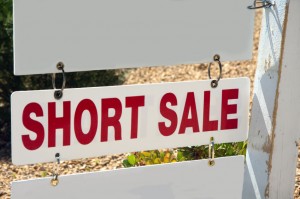Do Short Sales Have A Stigma in the Phoenix Real Estate Market?
 Currently, home buyers in the Phoenix market are more likely to purchase a traditional sale because over 96 percent of homes for sale are traditional sales.
Currently, home buyers in the Phoenix market are more likely to purchase a traditional sale because over 96 percent of homes for sale are traditional sales.
A recent article on Bankrate.com discussed the “stigma” that exists for short sales. This article was based on the Boca Raton, Florida housing market. The article stated: “Homes listed as ‘not short sales‘ sold for two to five percent more than non-distressed homes that did not state that. Homes listed as “not a short sale” also sold faster, selling about 10 to 15 percent faster than other similar properties”, according to the study’s author Ken H. Johnson, an associate professor at the Tibor and Sheila Hollo School of Real Estate at Florida International University in Miami.
This all seems very obvious; short sales are, for all intents and purposes, distressed properties. The fact that short sales sold two to five percent slower than traditional sales doesn’t surprise me. A short sale has several obstacles, the largest being whether or not the seller’s lien holder will approve the short sale.
Why should a short sale cost less than a traditional sale? Some reasons are:
· Deferred maintenance;
· Waiting period of more than 90-days for lien holder’s approval; or
· The property is sold “as-is”, meaning no repairs will be done by the seller.
Let’s put this in perspective, if you were a homebuyer would you want to wait three to four months hoping that you are can purchase your new home? The alternative is purchasing a home through a traditional sale, where you could own your new home in about 30 days. Not to mention that you could ask the seller to make repairs to your new home.
In terms of the Phoenix real estate market, right now there are approximately 16,600 homes active on the MLS, only 583 of these homes are listed as short sales. That means only 3.5 percent of the homes for sale right now are short sales.
According to ARMLS, in the last year the median sold price of a home in the Arizona Regional MLS has increased by 28.54 percent. This increase in price has helped most homeowners restore equity in their homes, thus not having to short sell their home. The price increase has helped many homeowners to be able to sell their homes through a traditional sale.
The decline of short sales has affected many REALTORS, including me, that primarily sold short sales. However, the upside to the lack of short sales is home prices on the rise and more homeowners being able to sell their homes through a traditional sale.
As a note, 16,000 homes on the MLS is a very low number of homes for sale in the Phoenix real estate market. With such low inventory on the MLS, homes are seemingly flying off the market, most homebuyers are happy to find a home to purchase.
So does a “stigma” exist regarding short sales in Arizona? Of course. But mainly because short sales can be categorized as “distressed” properties. A traditional sale costs a bit more and is generally in better shape. Whereas, a short sale will have deferred maintenance, but will cost less.
Tags: Charlie Allred, short sale